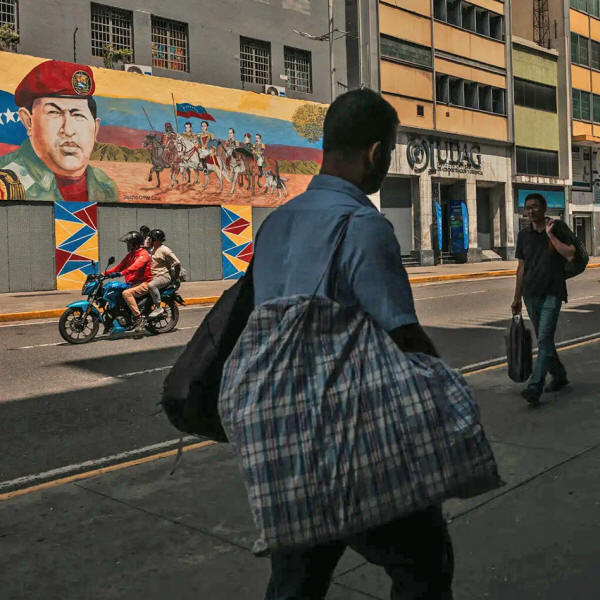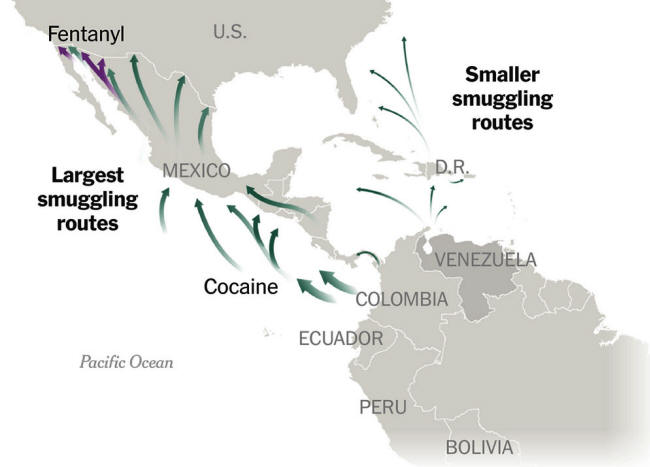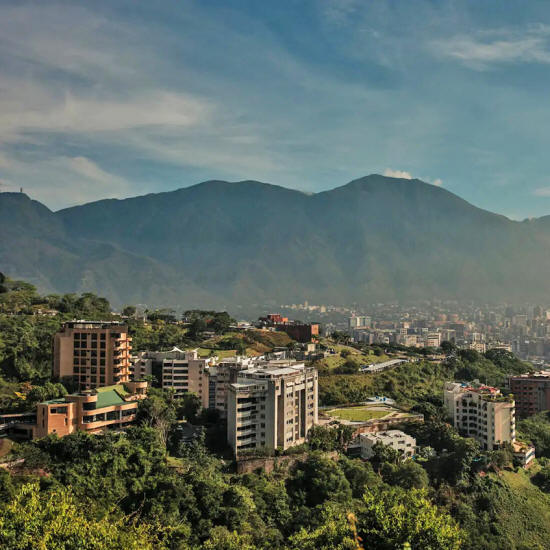|
by
David E. Sanger from NYTimes Website
People walking under a painting of Hugo Chávez, the Venezuelan president
who died in 2013, in
military garb. Credit: The New York Times
Trump administration's tactics against Venezuela....
The president confirmed a New York Times scoop, published a few hours earlier by my colleagues Julian Barnes and Tyler Pager, that he had secretly authorized the C.I.A. to conduct covert action inside the country, part of a U.S. campaign against Nicolás Maduro, the authoritarian leader who clings to power there.
The normal answer to questions about such authorizations, used by almost all of the presidents since World War II, is something along the lines of I don't know what you are talking about, but if I did, I couldn't comment.
In that context, the warships massing off Venezuela's Caribbean coast, the 10,000 troops poised nearby and the bombing of boats allegedly filled with "narcoterrorists" are efforts at psychological warfare...
Trump hopes to scare Maduro into exile.
Trump added to the pressure on Wednesday when he said the next step might be a land attack.
He has declined to explain, to Americans or even to many in Congress, what exactly he is trying to accomplish.
Well, that makes sense, but in that case the Navy is on the wrong coast:
Access to oil?
But there are ways of negotiating over oil short of military or covert action, and Trump cut off those talks weeks ago.
Sources: U.S. Drug Enforcement Administration; United Nations Office on Drugs and Crime. Samuel Granados/The New York Times
Which leaves regime change as the all-but-certain explanation...
Credit: The New York Times
Intelligence agencies have already shot down the idea that the Maduro government is sending criminals to sabotage the United States. (The analysts were either shut down or fired.)
Drugs are an issue, but Venezuela is not a source of fentanyl, the most damaging narco-import. Its ingredients come from China and are brewed in Mexico, and Trump doesn't advocate regime change in those nations.
That history is checkered at best.
It might be helpful for the president and his aides to remember them, says Tim Weiner, a former Times reporter whose new history of the C.I.A., "The Mission," reminds readers of what happens when regime-change operations go wrong.
Many resulted in unnecessary deaths, but
almost all led to unintended consequences, often disastrous ones...!
|




